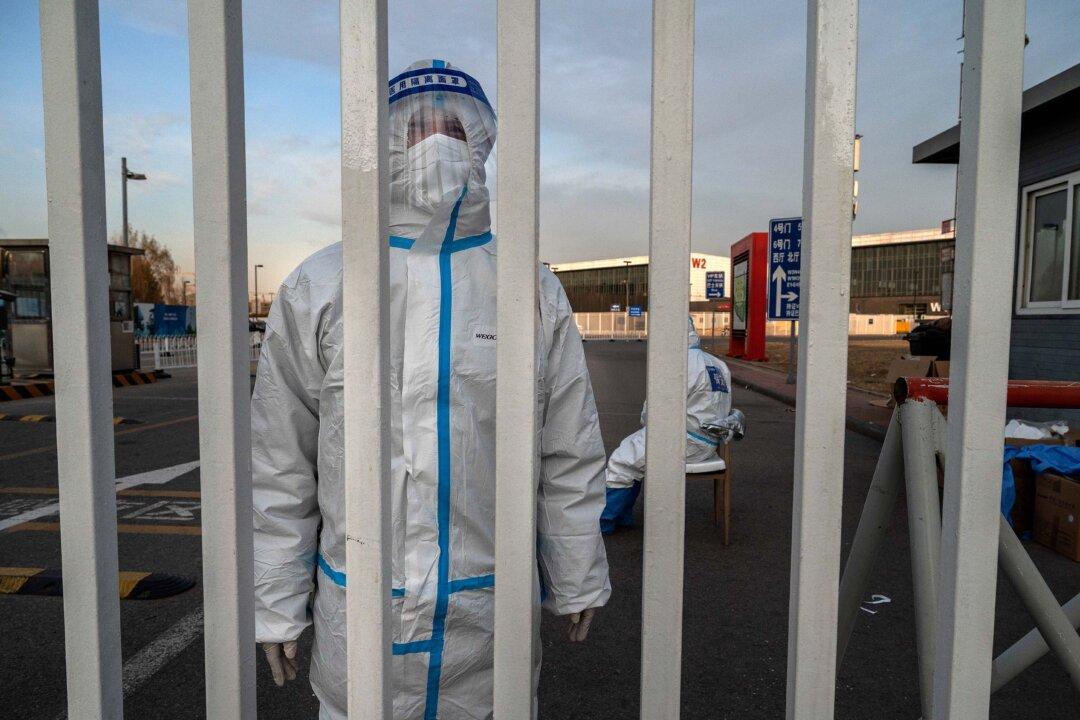Zhao Lei (pseudonym) has worked as an epidemic control worker wearing white protective clothing since June. Beijing’s sudden easing of COVID-19 prevention measures meant he was terminated from his job. To him, the preventive volunteer job was a temporary but quick way to make money.
Zhao said he wanted to continue doing the job for as long as he could, and is ready to work again during the next pandemic peak that some Chinese people anticipate is sure to occur.




